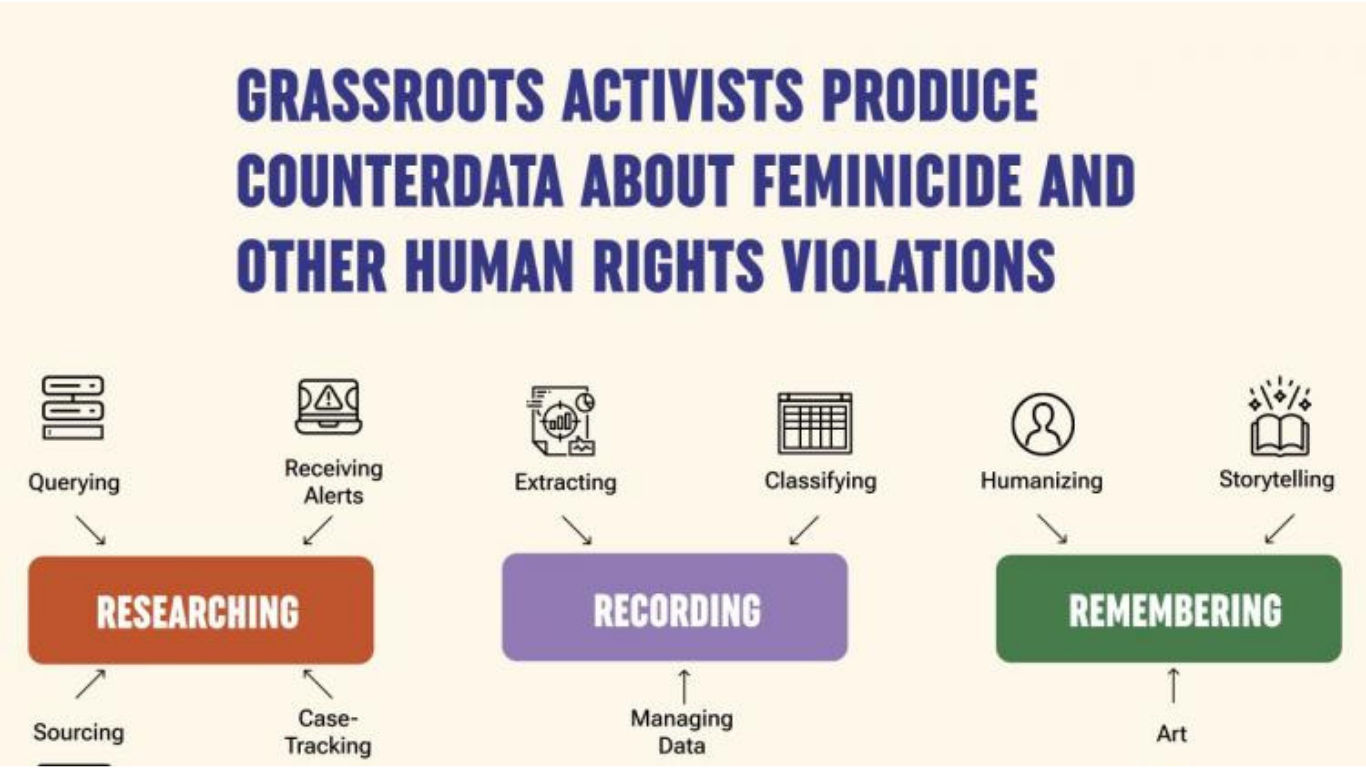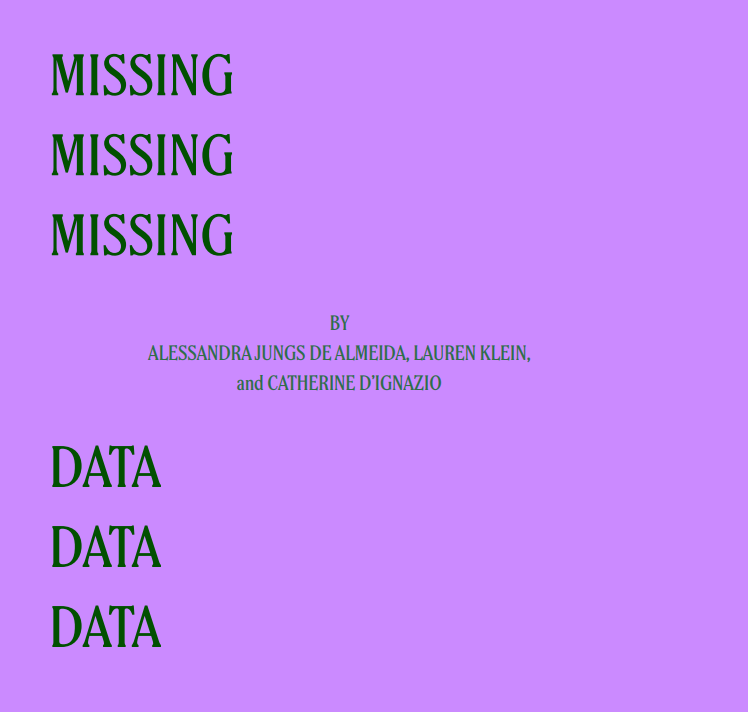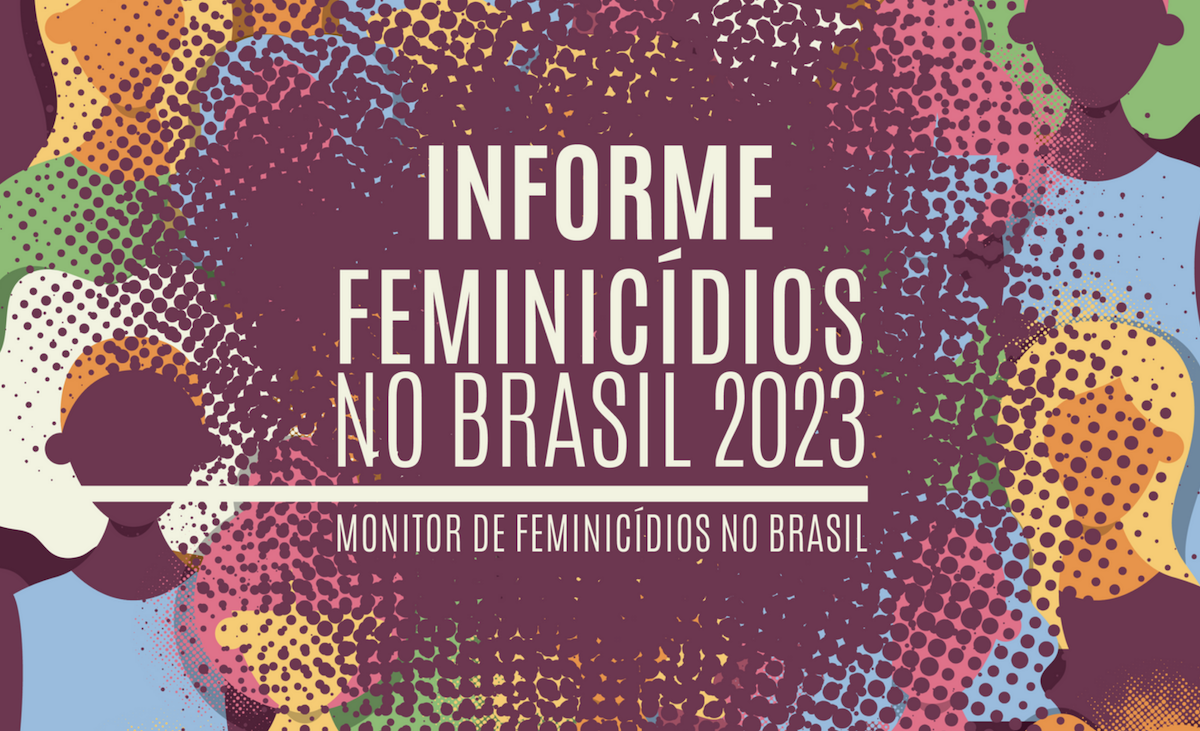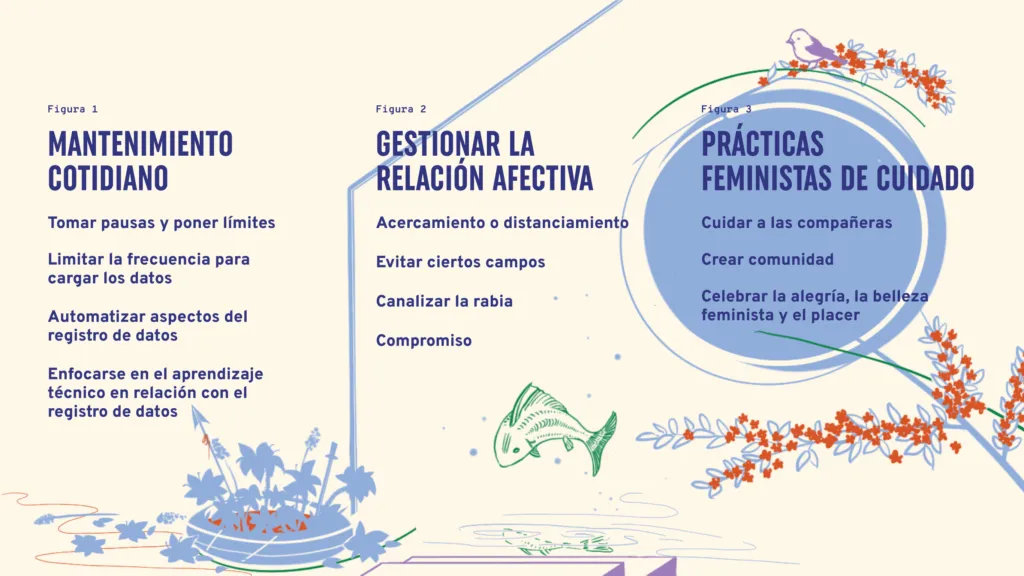Category: Strategic Datafication
-

Counting Feminicide: Data Feminism in Action (D’Ignazio, 2024)
What isn’t counted doesn’t count. And dominant institutions systematically fail to account for feminicide, the gender-based murder of women and girls, including cisgender and transgender women. In the face of this failure, Counting Feminicide foregrounds the work of data activists across the Americas who are documenting these kinds of murders and challenging the reigning logic…
-

Feminicide and counterdata production: Activist efforts to monitor and challenge gender-related violence (D’Ignazio et al, 2022)
Gender-based violence against women and its lethal consequence, femicide, are a serious problem worldwide. Official government data on gender-based violence and femicide are often absent, incomplete, infrequently updated, and contested. We draw on data feminism to situate femicide data as missing data. Drawing on qualitative interviews, this study analyzes the informatics work of ten activist…
-

MISSING DATA (Jungs de Almeida et al, 2024)
This article explores the concept of “missing data” from a political and social perspective, rather than merely a technical one. While traditional definitions of missing data typically refer to information that is literally missing or incomplete, the approach taken here, aligned with artist and educator Mimi Ọnụọha, considers missing data as that which does not…
-

Geographies of missing data: Spatializing counterdata production against feminicide (D’Ignazio et al, 2024)
Feminicide is the murder of cisgender and transgender women and girls for gender-related reasons. It reflects systems of patriarchal and racialized oppression and reveals how territories and socioeconomic landscapes shape everyday gender-based violence. In recent decades, many community data production initiatives have emerged with the goal of monitoring this extreme yet often invisible phenomenon. We…
-

Missing data and counterdata (Cruxên et al, 2024)
Cruxên, I., Jungs de Almeida, A., Klein, L. F., & D’Ignazio, C. (2024). Dados Ausentes e Contradados. Em S. Mariano (Ed.), Informe Feminicídios no Brasil 2023: Monitor de Feminicídios no Brasil. Márcio Ferreira de Souza. https://dspace.mit.edu/handle/1721.1/157846?show=full O Monitor de Feminicídios no Brasil (MFB) é uma iniciativa do Laboratório de Estudos de Feminicídios no Brasil, formado…
-
Feminicide Data Activism (Collectif Féminicides Par Compagnons ou Ex at al, 2023)
This chapter weaves together, as nodes in a network of care, the experiences of activists collecting feminicide data in France, Germany, Kenya, Kyrgyzstan, Mexico, Russia, the United States, and Venezuela. In our work, we draw from a long genealogy of feminist research and activism on femicide/feminicide and gender-related violence. To contextualise our practices, we draw…
-

Feminicide data, emotional labor and self-care (Suárez Val et al, 2022)
Producing feminicide data has historically been an important feminist tactic to make gender-related violence visible and to draw attention to the lack of data from official sources. María Puig de la Bellacasa says, in relation to the production of knowledge, that “care” implies simultaneously the work of daily maintenance, an ethico-political commitment and the affective…
